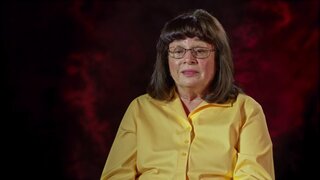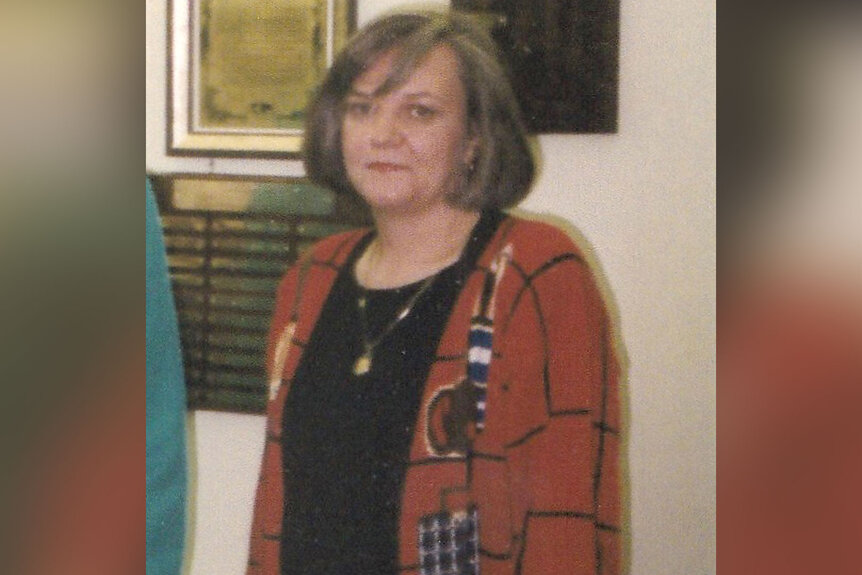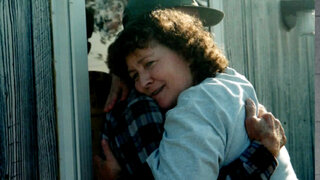Create a free profile to get unlimited access to exclusive videos, breaking news, sweepstakes, and more!
Mayor Convicted Of Wife’s Murder Nearly 10 Years Later After Testimony From Daughters
After Charlotte Waites was found dead in 1998, no one suspected that her husband was the one who brutally murdered her.
The small town of Lanett, Alabama was turned upside in the summer of 1998, when the mayor’s wife, a beloved figure in the community, was found dead in her home.
Authorities received a 911 call on August 4, 1998 at around 5 p.m. reporting that an unresponsive woman had been discovered at the mayor’s home. Upon their arrival, they found the mayor’s daughter, Heather, desperately asking for police to help her mother, who was prone on the floor. But when authorities got closer, their hopes sank: Charlotte Waites was cold to the touch — so cold she’d likely been deceased for some time already.
There was foam at the corners of Charlotte’s mouth, suggesting she may have died ue to an unexpected medical issue. However, upon closer inspection, authorities began to suspect something darker had taken place: Her wrist seemed to be broken and there were scratch marks on her body. There were also other signs a struggle had taken place: Pictures had been knocked off the wall, and her upended purse was next to her body. Bloody towels were also found stashed at the bottom of a laundry bin.
It wasn’t long before Charlotte’s husband, Barry Waites, arrived. Barry was the mayor of Lanett and also worked at the National Guard Armory. He began hyperventilating at the scene and was rushed to the hospital because authorities feared he was having a heart attack.
Who could have wanted to hurt Charlotte Waites? A former second-grade teacher and current school administrator, those who knew her described her as someone who was “kind, gentle, always smiling, [and] cared about others.” She and her husband had a great marriage and had two teenage daughters. By all accounts, they lived a perfect life.
“When you were around them you could feel the love. They were well respected in the community,” Robby Bettis, a lieutenant with the Lanett Police Department, told “An Unexpected Killer,” airing Fridays at 8/7c on Oxygen.
During her interview with police, Heather said that she’d come home from college for the weekend only to open the door and find her mother lying at the bottom of the stairs. She’d rushed to her side and found her cold, so she called 911 and then her dad. Police then talked to Barry the following day, after he was released from the hospital.
“When it’s this type of murder, it’s usually someone very close to them. At the same time, nobody would ever expect the mayor could do anything like this,” Bettis said. “Anyone that knew Barry knew [that] he’s like a big teddy bear.”
During his interview with police, Barry said that he’d been at work the whole day until he got the call from his daughter, at which point he rushed home. Authorities were low on suspects, and suspicion soon turned to a boy that the couple’s young daughter Cara was dating, someone who her parents did not like because of the kind of rough lifestyle he lived, authorities said. To make matters more complicated, Cara, who was in high school at the time, was pregnant, leading authorities to wonder if the tension in the family had perhaps reached a boiling point.
However, when police brought the teen in question in for an interview, he claimed to have been at work the whole day, and his alibi was quickly verified by his employer.
Investigators then focused on trying to pinpoint when exactly the murder took place. After speaking to Charlotte’s co-workers, they learned that she’d been at the office that morning but had gone home at around 11 a.m. to get ready for a baby shower at work later that day. Her co-workers called her a little later to try and get her order for lunch, but they never received an answer — no one heard from Charlotte again until her daughter found her dead at home at around 5 p.m.
The autopsy report came in two weeks after Charlotte was killed: She’d been strangled with the decorative strings of the blouse that she was wearing that day. She’d also been punched in the face and thrown around so brutally that she’d sustained a head injury that also could have killed her.
Years passed with no answers. Charlotte’s daughters moved out of town and Barry remarried. Three years later, however, public interest in the case was reawakened when Barry decided to run for re-election. A man named Rod Spraggins was running against Barry and made a shocking claim: Barry was the one who killed his wife three years ago.
Police were unsure if they should take the claim seriously, but the renewed attention on Barry led investigators to learn that he was in the midst of financial trouble. Barry was the caretaker of his mother’s estate, and yet she somehow was in danger of losing her house, leading to rumors that Barry was mismanaging his mother’s money. Police dug deeper and found that Barry had actually stolen more than $10,000 from his mother’s account and put it into his own some time before the murder took place.
“If you’ll steal from your mother, you’ll steal from anybody,” Damon Lewis, a chief assistant DA with the fifth judicial court, told producers.
Just like that, Barry was back on the police’s radar. They began investigating him and discovered that he’d actually been renting out the armory where he worked without alerting his superiors and was instead pocketing all the money. Police were able to use the embezzlement claims as an excuse to get Barry in for an interview and once there, he confessed to the scheme. He accepted a plea deal that got him six months in jail, and gave police more time to investigate Barry’s possible involvement in Charlotte’s murder.
They learned Barry had a history of financially irresponsible behavior and making bad decisions with the family’s money without Charlotte’s knowledge. Police soon came up with a theory: Charlotte was planning to meet with a lawyer on the day she died to settle things in regards to the inherited property dispute, but Barry didn’t want her to. Barry and Charlotte likely got into a fight that day, and Barry killed her, perhaps without planning to, police theorized. He first punched her and when she tried to get away, used the strings on her shirt to strangle her. He then kicked her down the stairs and dumped her purse to make it look like a robbery.
When confronted by police, Barry clammed up and refused to speak. But a break in the case came when his daughters, after remaining tight-lipped for years, went to the District Attorney’s Office with a bombshell claim: Their father had cheated them and stole from them, leaving them with nothing after their mother’s death. He first talked them into giving him the money from their mother’s life insurance policy, and then reneged on a promise to sign away their mother’s property to them and instead gave it to his new wife. He’d also lied to them for years — he intimidated them into not talking to the police by telling them that one of them was actually the main suspect in their mother’s murder. He’d also admitted to giving the police fake tips in an effort to protect himself.
“Now they learned what kind of person their daddy is and they said that they finally realized that their dad killed their mom,” Richard Carter, a lieutenant with the Lanett Police Department, told producers.
Prosecutors charged Barry with his wife’s murder and his daughters testified against him during the 2006 trial. He was found guilty and sentenced to 40 years in prison.
Following the guilty verdict, District Attorney E. Paul Jones said that seeing the case through to the end was necessary for the victim’s family to get the closure they deserved, WSFA reported at the time.
“Whether the verdict had been guilty or not guilty, I believe it was terribly important that this case be brought to a conclusion,” he said. “The girls needed closure. “They had to deal with the death of their mother, their father being under suspicion, and then finding out their father actually did it. It's important so they can go on living their lives.”
For more on this case and others like it, watch “An Unexpected Killer,” airing Fridays at 8/7c on Oxygen.

































